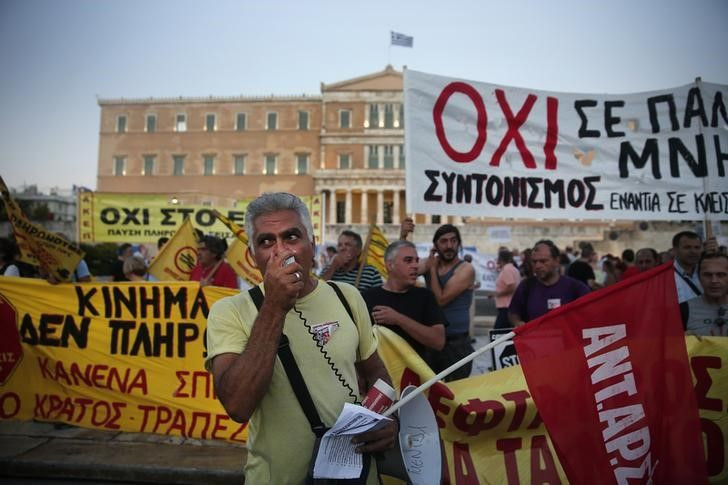Greece Approves Crucial Second Set Of Bailout Reforms

Greece moved closer to securing a third bailout Thursday, after lawmakers passed a second package of reforms demanded by international creditors, which will allow negotiations on unlocking 86 billion euros ($94 billion) in financial assistance to begin.
The measures passed in the early hours of the day include a code of civil protection aimed at speeding up court cases, the adoption of an EU directive to bolster banks and protect savers' deposits of less than 100,000 euros, and the introduction of rules that would see bank shareholders and creditors -- not taxpayers -- cover costs of a failed bank, BBC reported. More controversial measures, including tax raises for farmers and phasing out early retirement, have been shelved until August.
Prime Minister Alexis Tsipras won the support of the chamber with relative ease, with the final tally of votes being 230 in favor, 63 against and five abstentions. While 36 MPs from the ruling Syriza party voted “no” or abstained, opposition was lower than at a similar vote last week.
One high-profile figure, former finance minister Yanis Varoufakis, also supported the measures this week, after having voted against the previous set of reforms, and denouncing the proposed EU bailout in emphatic terms last week. Varoufakis said that the specific measures being voted on included reforms he had previously put forward himself, the Guardian reported.
Tsipras reiterated during the debate that he himself does not support many of the measures, but said he saw them as the lesser of two evils.
“Conservative forces within Europe still insist on their plans to kick Greece out of the euro,” he said, according to Bloomberg. “We chose a compromise that forces us to implement a program we don’t believe in and we will implement it, because the choices we have are tough.”
Anti-austerity protesters took to the streets as the Greek parliament debated the measures, with some 6,000 people, mostly members of the Communist-affiliated PAME trade union, gathered in Athens' Syntagma Square.
The protests were largely peaceful, until what media reports described as a small number of anarchists threw petrol bombs at police, but the situation quickly calmed down.
Greece will now begin negotiations on the terms of a third European bailout on Friday.
© Copyright IBTimes 2025. All rights reserved.






















